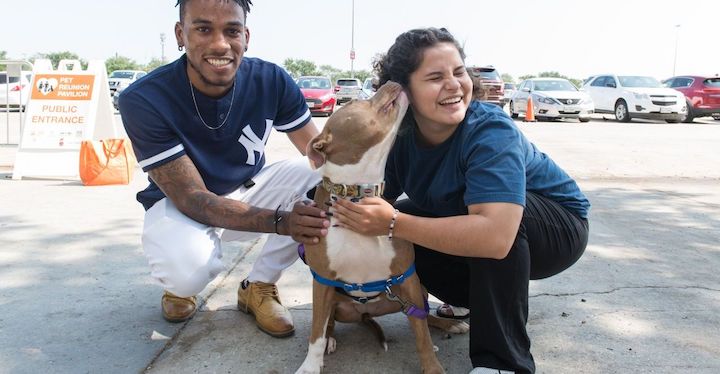
Keeping Families Together: Navigating the Blurry Lines Between Neglect, Cruelty and Lack of Access to Care
As we navigate the change to impounding only high-priority intakes, animal control officers come across field cases where impounding an animal is necessary. But, there are also cases where providing the owner with resources keeps the pet at home and out of the shelter.
In this town hall our our panel will help define cruelty vs. lack of pet resources to help you establish organizational guidelines for when to provide resources vs. impound an animal.
Moderator:
Scott Giacoppo, Director of National Municipal and Shelter Support, Best Friends
Panelists:
Audra Michael, CPM, director, Pinal County Animal Care and Control
April Moore, chief officer of animal services, Kansas City Pet Project
Nick Walton, manager of national municipal and shelter support, Best Friends Animal Society
AUDRA
- When you first started what was the philosophy of regarding impoundment of animals found in violation of the cruelty laws and how has that changed since then? -0:03:42
- At what point do you think enough is enough and decide to impound and charge? -0:05:50
- I know you play a role in new officer training; how do you teach them to make these decisions? -0:10:10
APRIL
- What strategies would you recommend to those who are in a position to change a veteran officer’s way of thinking? -0:12:58
- When you were in Austin, they were an enforcement-based organization, then they made the switch. How did it feel and what were your obstacles to leaning the new way? -0:16:55
- How did the community including the animals really benefit from it? -0:19:16
- What should an agency do or watch for when making the transition? -0:20:50
- When you set performance measures that aren’t being met how do you have those discussions? -0:22:14
NICK
- You came into a department that was making some transition and were actually trained by someone who at the time had an enforcement-based mindset, but you never went that route. Tell us what made you go the other way? -0:23:53
- You then became the FTO for the department, tell us how you trained new officers how to make these critical decisions on whether or not to impound and charge someone with animal cruelty or to work to keep the families together. -0:27:10
- What benefits do you think the department and you as an officer got from being this way? -0:29:46
- Your role now is to work with agencies across the country, what is the one piece of advice you think means the most that you give to everyone you work with? -0:33:37
ALL PANELISTS
- What were some creative ways you were able to provide resources that kept pets in their home? Were those were coming from your agency or a partner agency? -0:35:47
AUDIENCE Q&A
- Have you looked at social work guidelines for child abuse as a comparison for animal welfare? -0:44:29
- Should people who surrender their animals because they can’t care for them ever receive citations? -0:45:41
- What are your opinions on ACO uniforms? -0:47:56
- What are your most pressing closing thoughts? -0:54:21
![]() DOWNLOADABLE PDFs, PLAYBOOKS, & SOPs
DOWNLOADABLE PDFs, PLAYBOOKS, & SOPs
- Best Friends Community Kindness Cards
- Best Friends Humane Animal Control Manual
- Best Friends Network Proven Strategies
- NACA website
If you enjoyed this town hall, you can find our complete catalog of town halls here.